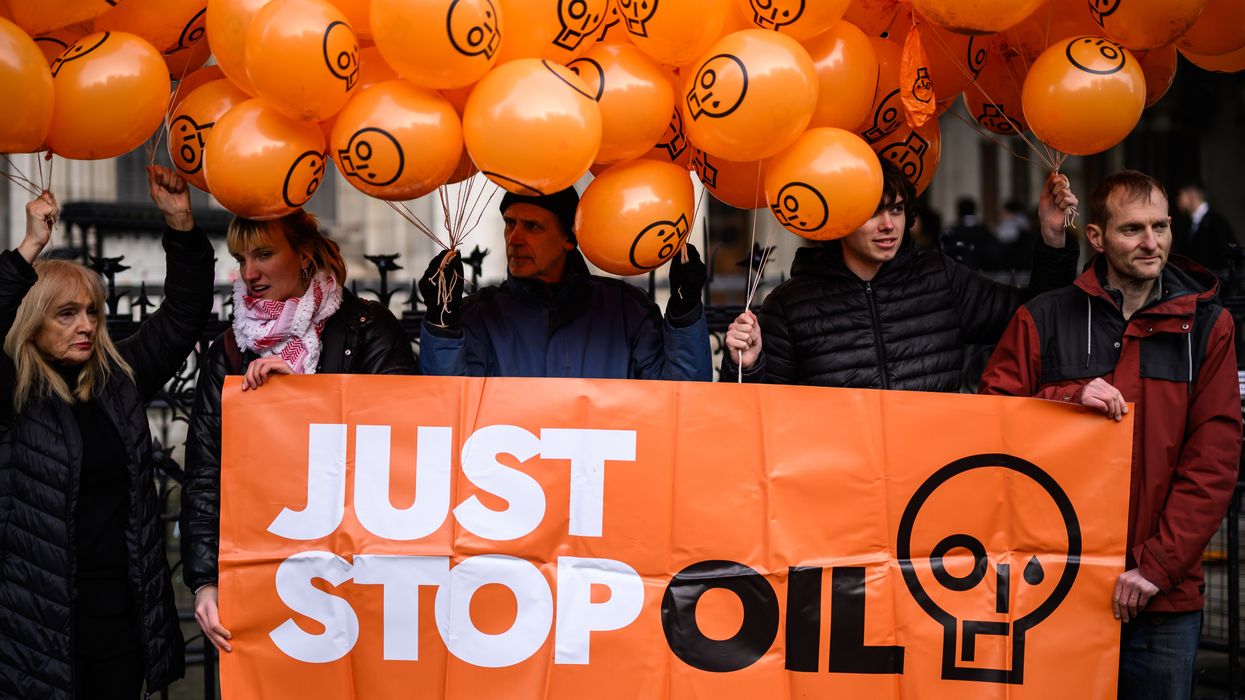THE bodies of two construction workers were found near Baltimore harbour Wednesday (27), after a giant cargo ship slammed into the Francis Scott Key Bridge causing a thunderous collapse on Tuesday.
Maryland police told reporters the workers were filling potholes on the bridge and the bodies were found trapped in a red pick-up truck.
They added that sonar shows what they believe are more vehicles trapped within the concrete and twisted steel debris of the bridge.
Six of the eight-man construction crew are believed to have been killed, with four bodies yet to be found.
Warning that it was not safe for divers to try to penetrate the wreckage, police told a press conference that they were shifting to a salvage operation, removing the superstructure and then sending divers back in to recover the rest of the bodies.
"Based on sonar scans, we firmly believe that the vehicles are encased in the superstructure and concrete that we tragically saw come down," Colonel Roland Butler, the superintendent of Maryland's state police, told a press conference.
Federal investigators also gave a detailed timeline of the tragedy based on preliminary findings from the ship's voice data recorder.
Marcel Muise, lead investigator for the National Transportation Safety Board, told a separate press conference that the container ship Dali, about 1,000 feet (300 metres) long and piled high with cargo, left dock at 12:39 am Tuesday en route to Asia.
At 1:24, alarms began sounding on the ship with indications of power trouble and the pilot soon radioed the port authority that the vessel was headed for the bridge, requesting tug boats.
The call for help was heard by two Maryland Transportation Authority units on the bridge because of the roadwork, and they shut down all lanes of traffic, likely saving lives.
Muise told reporters that at 1:29 the voice data recorder captured "sounds consistent with the collision."
Nearly the entire steel structure - crossed by tens of thousands of motorists each day - collapsed within seconds, cascading over the bow of the ship, blocking one of the busiest US trading ports.
There was no chance to evacuate the eight workers filling potholes on the interstate directly above the oncoming ship.
Butler named the two victims found Wednesday as Alejandro Hernandez Fuentes, a 35-year-old who had lived in Baltimore but was originally from Mexico, and his 26-year-old colleague Dorlian Ronial Castillo Cabrera, who lived in the suburb of Dundalk but came from Guatemala.
They were found in 25 feet of water, he said.
Two others were pulled from the water alive in the moments after the collapse early Tuesday. One was uninjured, while the second was released from hospital Wednesday, Butler said.
Four more workers are presumed dead, vanished into the swirling currents and crumpled tangle of wrecked girders and pylons.
'Hard-working' men
The vessel, which remained entangled in the debris Wednesday, was "stable," Coast Guard Vice Admiral Peter Gautier told reporters at the White House, adding that the mostly Indian crew remained on board and were "very much engaged" in the investigation.
The NTSB said that at the time of the crash there were 23 crew on board including the two pilots.
The agency said the ship held 56 containers of hazardous materials, some of which were breached after the bridge fell, leaving a sheen on the water.
Gautier insisted the ship did not present an environmental danger. Two other containers - of the total 4,700 - were lost overboard, he said.
Officials said the missing workers were from El Salvador, Guatemala, Honduras and Mexico.
"They are all hard-working, humble men," said Jesus Campos, a colleague of the eight workers, all employed by contractor Brawner Builders.
Busy harbour blocked
The ship had passed two overseas inspections in 2023, the maritime authority for Singapore, where the ship is flagged, said Wednesday, adding that a fault monitor gauge was fixed in June.
The Port of Baltimore is the ninth-busiest major US port in terms of both foreign cargo handled and foreign cargo value, and is directly responsible for more than 15,000 jobs, supporting almost 140,000 more.
The effect on supply chains "clearly will not be trivial," US Transport Secretary Pete Buttigieg said, adding it was "too soon" to know when the port might reopen.
"Rebuilding will not be quick, or easy, or cheap," he cautioned.
Cargo diversion
Cargo bound for Baltimore will probably be partially diverted to the Port of New York and New Jersey, analysts say.
The port "has the capacity to handle whatever will come their way," a shipping industry source told AFP.
This is because the Port of New York and New Jersey is the second or third busiest in the country, and handles the equivalent of Baltimore's year-long container volume in a much shorter period, the source said.
Bethann Rooney, port director at the Port Authority of New York and New Jersey, added that it is "proactively working with our industry partners to respond as needed and ensure supply chain continuity along the East Coast."
Lawsuits likely
The owner, operator, and charterer of the container ship that struck Francis Scott Key Bridge are likely to face lawsuits over its collapse and the people killed or injured, but legal experts say US maritime law could limit the companies’ liability.
US laws pertaining to open-water navigation and shipping, which are created through court decisions and by acts of Congress, could restrict the kinds of lawsuits filed against the registered owner of the Singapore-flagged ship, Grace Ocean Pte Ltd, its manager Synergy Marine Group and its charterer Maersk, and could limit the damages they would have to pay, three legal experts told Reuters.
The economic damages suffered by the city of Baltimore from the closure of the port, the busiest port for car shipments in the U.S., or by businesses that rely on it and the now-collapsed bridge would not be recoverable through lawsuits, said Martin Davies, director of the Maritime Law Center at Tulane University School of Law.
Insurer helping probe
Britannia, the insurer of Dali, is working with the vessel's owner and US authorities on the investigation into the bridge collapse.
"We are working closely with the vessel’s owner and manager and the relevant US authorities as part of the investigation into the casualty," Britannia said in a statement. (Agencies)






 From L- Jasvir Singh, MPs Diedre Costigan, Catherine West, Sarah Coombs , Kanishka Narayan, Cllr Sunny Brar and Vidhya Alakeson during the event.
From L- Jasvir Singh, MPs Diedre Costigan, Catherine West, Sarah Coombs , Kanishka Narayan, Cllr Sunny Brar and Vidhya Alakeson during the event. 












